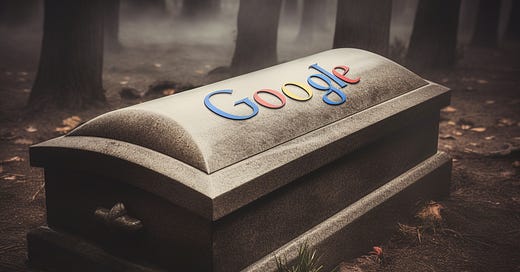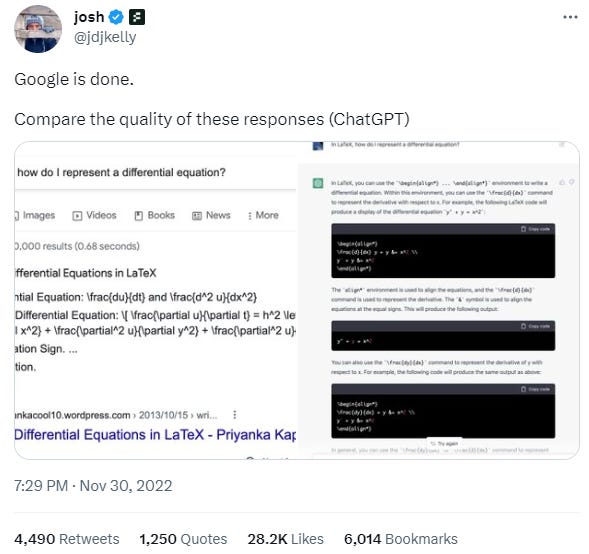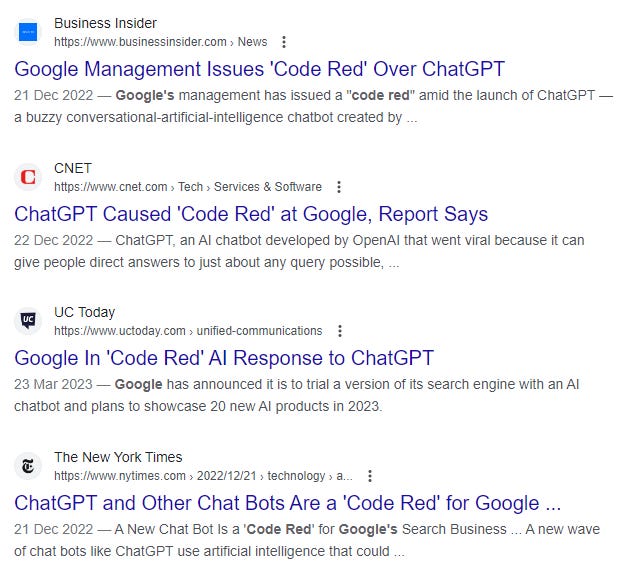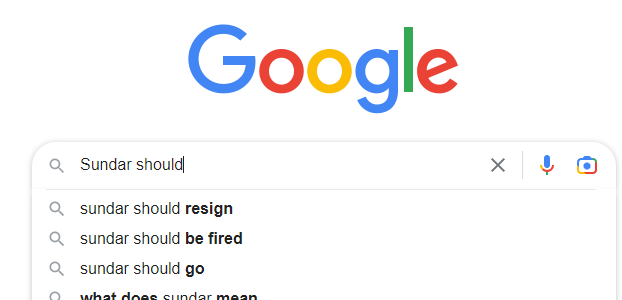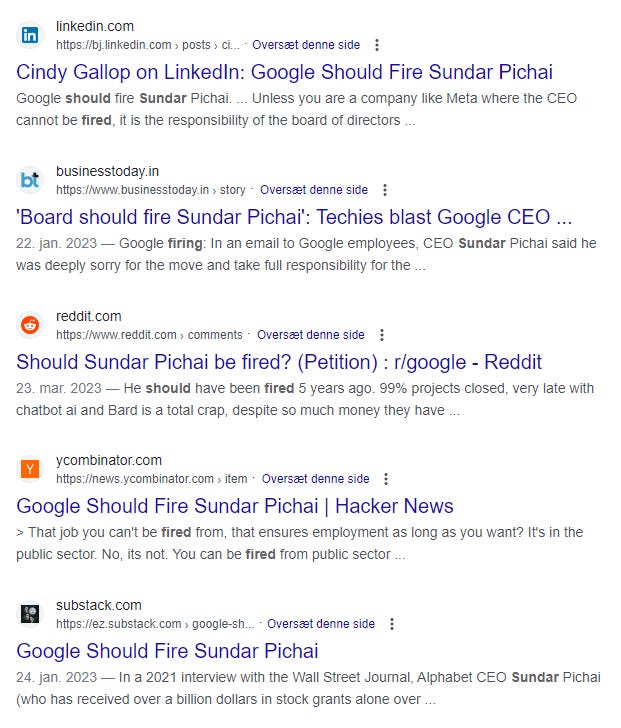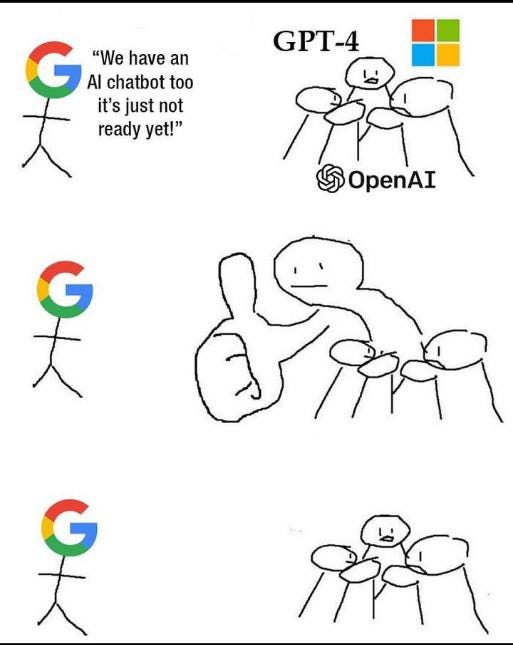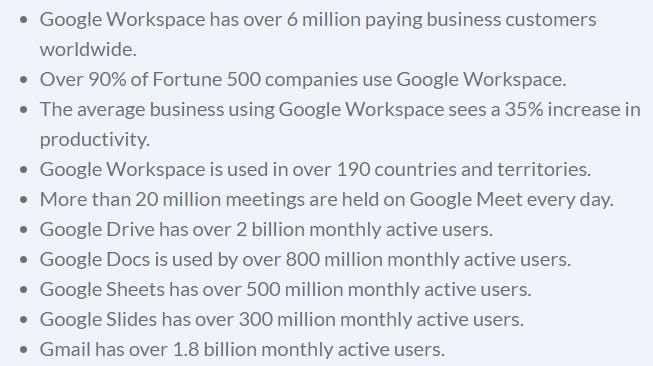Just How "Dead" Is Google, Anyway?
Google's been buried multiple times since ChatGPT first launched. But is the company really as hopelessly behind in AI as everyone makes it sound?
Have y’all heard? Google’s done!
Managers at Google even issued a “Code Red” thanks to ChatGPT, so you know things are bad!
There have been calls for Sundar’s blood.1
So much so, that this is how Google autocompletes the search for “Sundar should…”:
And boy, are there hot takes on this topic:
The consensus story seems to be that Google got complacent, fell asleep at the wheel, failed to see the massive opportunities within generative AI, and got its lunch eaten by OpenAI and Microsoft.
Just look at the memes. They don’t lie!
It probably doesn’t help that Google is notorious for releasing AI research papers without making the corresponding models or products publicly available.
And it definitely doesn’t help that Bard—Google’s first public foray into the AI chatbot scene—was so underwhelming.
So, is Google basically done for?
I just don’t see it!
To me, this is less the case of Google blindly missing obvious signs and more the case of the company being nudged into reluctantly doing something it was—perhaps justifiably—cautious to do up to now.
Here’s why.
Google is no stranger to AI
Implications that OpenAI discovered some voodoo magic that Google doesn’t have a clue about simply don’t hold water.
Google’s the OG of AI.
The “T” (“transformer”) part of “GPT”? Google came up with that in the famous Attention Is All You Need research paper.
Google employs thousands of AI researchers across Brain and DeepMind (recently merged). The company’s research paper collection boasts almost 10,000 publications to date, many of them on AI-related topics.
Google’s internally tested LaMDA model was good enough to famously convince engineer Blake Lemoine it was sentient…a good half-year before ChatGPT came out.
In short, Google isn’t exactly lacking AI capabilities.
“But Daniel,” I imagine you asking while adjusting your monocle, “If all of that’s true, how come OpenAI beat Google to the punch?”
Welp, that’s probably more to do with the fact that...
Google simply had way more to lose
OpenAI—a relative unknown with a small pre-existing user base—could afford to launch a shiny new AI chatbot, even if it famously hallucinates and is often bad at math, logic, and more.
Microsoft could live with its early iteration of Bing going off the rails, gaslighting users, and professing love to a journalist. After all, Bing chat was a deliberate play at chiseling away at Google’s absolute dominance in search. Microsoft had little to lose and everything to gain in that space.
Google, on the other hand, had no such luxury.
Having built its entire business model around providing relevant, vetted, and helpful search results, Google clearly saw the reputational risks of releasing a chatbot that doesn’t know what year it is.
But maybe Google feared more than just the reputational hit from releasing an imperfect AI chatbot; Google might’ve been afraid of accelerating the eventual emergence of a chatbot so perfect, it single-handedly shatters Google’s entire core business by introducing a brand new search paradigm that the company’s advertising model isn’t well-positioned for.
(This deep dive by
is an absolutely phenomenal exploration of this "positioning" angle.)Regardless, Google ended up in the classic “rock vs. hard place” scenario: Enter the AI game prematurely with all the risks this entails, or watch others slowly chip away at your market dominance while shaping the new era of search without you.
Now, it looks like Google—even if hesitantly—is gearing up for the former.
The times…they are a-changin'
There are signs that Google’s risk-averse behavior might be coming to an end.
The recently leaked “We Have No Moat” document by an anonymous Google researcher argues that both Google and OpenAI are ultimately unable to compete with open-source efforts when it comes to flexibility and speed of incremental improvements.
But it has this key insight in it:
The value of owning the ecosystem cannot be overstated. Google itself has successfully used this paradigm in its open source offerings, like Chrome and Android. By owning the platform where innovation happens, Google cements itself as a thought leader and direction-setter, earning the ability to shape the narrative on ideas that are larger than itself.
If this document is treated internally as a rallying cry rather than defeatist sentiment, Google may get to substantially impact the future direction of generative AI.
It’s worth noting that, at least for now, Google has something OpenAI doesn’t: A truly massive existing customer base.
To be sure, ChatGPT did set records for the fastest-growing user base. At the time of writing, the site is estimated to have upwards of 100 million active users.
But Google fields 8.5 billion searches per day.
User stats for Google Workspace and other productivity apps are equally impressive:
(Let’s not forget the 2.7 billion active YouTube users.)
If Google manages to roll out truly useful AI features within these platforms, the company has every chance to dominate the discourse around LLMs, text-to-image, and other generative AI.
And if yesterday’s Google I/O developer conference is anything to go by, that’s exactly what’s about to happen.
In the following 10-minute summary video of Google’s keynotes, the first 8 minutes are dedicated to AI-related topics. Then Pixel products get a brief 1-minute window, only to loop right back to Sundar Pichai declaring:
“The shift with AI is as big as they come […] we’re approaching it boldly, with a sense of excitement.”
Here’s an impressively long list of AI-focused I/O keynotes and learning sessions.
There’s little doubt that Google is now going all-in on AI.
OpenAI and Microsoft have successfully awoken a sleeping giant. Or, as Microsoft CEO Satya Nadella called it, an “800-pound gorilla”:
But look, at the end of the day, [Google] are the 800-pound gorilla in this. That is what they are. And I hope that, with our innovation, they will definitely want to come out and show that they can dance. And I want people to know that we made them dance, and I think that’ll be a great day.
Well, it sure looks like the great ape is finally making its way to the dance floor.
I, for one, am excited to see what its new choreography might look like!
Over to you…
What’s your take on Google’s destiny? Can the company turn its perceived slow start around and become a major player within AI? Or is it bound to keep playing catch-up with mixed results?
Leave a comment on the site or shoot me an email (reply to this one).
Sundar Pichai, Google’s CEO. Granted, calls to fire him aren’t driven exclusively by Google’s perceived “dropping of the AI ball,” but they sure have increased since the ChatGPT chatter.

